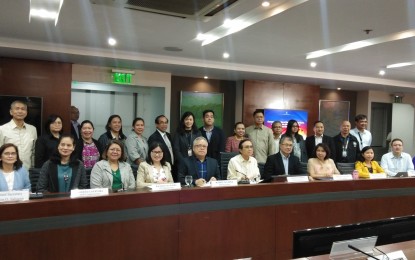
MANILA – Officials from the National Economic and Development Authority (NEDA), the Department of Trade and Industry (DTI), and the Department of Science and Technology (DOST) signed the implementing rules and regulations (IRR) of the Philippine Innovation Act (RA 11293) on Friday in Pasig City.
The Act, which was signed into law in July 2019, would harness innovation efforts to help the poor and the marginalized, and enable micro, small and medium enterprises (MSMEs) to be part of the domestic and global supply chain.
Socioeconomic Planning secretary Ernesto Pernia, before the ceremonial signing at NEDA’s headquarters, acknowledged the importance of innovation to shape the economy.
“The younger generation must be very interested in the quality of our economy and society,” he said.
Citing that the Philippines ranked 54th in the 2019 Global Innovation Index, up 19 notches from its previous ranking in 2018, Pernia said the country is now part of the “innovation achievers” cluster.
The Philippine Innovation Act will enhance the competitiveness of MSMEs as this will champion technological advancements in the country, he said.
“We are bullish that only innovation can uplift the various industries that we have. The IRR will definitely help us implement the law,” said DTI secretary Ramon Lopez.
NEDA undersecretary Rosemarie Edillon said among the salient features of the IRR are:
Promote a culture of strategies, planning to encourage creative thinking and monitoring economic competitiveness; ensure effective coordination of innovation policies and programs; strengthen the position of MSMEs in the innovation ecosystem; suppressing bureaucratic hurdles; encourage entrepreneurial attitude; strengthen partnerships between the public and private sectors, academe, MSMEs and research and development institutes.
The officials said a National Innovation Council, led by the President, will be established to serve as the policy advisory body in the formulation and monitoring of the country’s innovation goals. (PNA)



